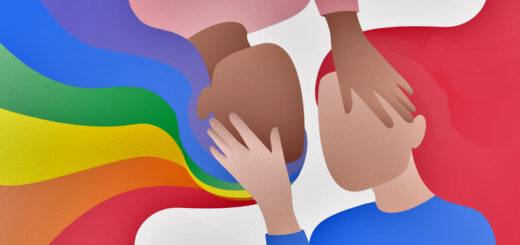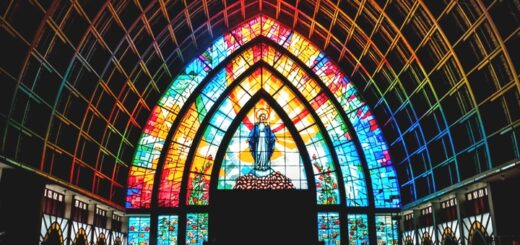Lou Sullivan's diaries. The radical story of transity transity
Jeremy Lybarger's article Posted on the magazine website The New Yorker (United States) on September 16, 2019, part before, freely translated by Innocenzo
"I want to look like what they are, but I don't know how to be someone like me", Lou Sullivan wrote in his diary, in the mid -sixties, when he lived as a teenager on the outskirts of Milwaukee (United States).
"I mean, when people look at me I want them to think: it is one of those people who think, he is a philosopher, who has his own idea of happiness. This is what they are."
Sullivan's diaries that began writing in 1961, at the age of ten, and until his death occurred for complications related to AIDS, in 1991, tell his search to exist in the world as it was and to take part To his happiness ...
Many stories (autobiographical) that the publishers Ellis Martin and Zach Ozma have collected in the books "We Both Laughed in Pleasure: The Selected Diaries of Lou Sullivan: 1961-1991", Which tell about its evolution as a rebel and obsessed Catholic student by the Beatles, to a well -known transgender writer and activist in San Francisco.
There are more than twenty volumes, all direct and delicate, casually poetic and voraciously sexual, in which Sullivan developed his identity and relationships, entrusting to those pages the story of his discovery of himself, and in which he built a parallel between The gay liberation movement and the initial transgender movement for human rights and the crisis caused by the spread of AIDS.
Sullivan was a gay trans man, at a time when his sexuality and his kind were seen as contradictory, a double identity that at the time could not exist. He was not the first gay trans man but, through his writing, activism, public speeches, occasional television apparitions has become one of the most visible transgender. He put pressure on the medical profession of time to recognize the existence of gay trans men and removed sexual orientation from the criteria associated with gender identity disorder.
He organized support groups, curated newsletter and, in 1980, wrote a book that self -refined "The manual to face the needs of the female-mastery“. In the meantime, he kept faith with his adolescent vote “To keep a diary until I am alive", In the hope that one day someone published and told" a phenomenon, like me ".
Sullivan crebbe a Wauwatosa, nel Wisconsin. Suo padre, John, possedeva un’azienda di trasporti e traslochi; sua madre, Nancy, era una casalinga e una commessa. Una parte di Sullivan aspirava a essere un buon cattolico come il resto della sua famiglia: da preadolescente, dichiarò nel suo diario che amava Gesù e promise: “Cercherò di essere bello nell’anima”. Ma aveva già una vena sovversiva.
Divorava musica pop – i Beatles, i Rolling Stones, Bob Dylan – e si divertiva a fingere di essere un ragazzo. Ma se i suoi gusti musicali erano innocui (sua madre era d’accordo con lui sul fatto che avrebbe potuto “tagliarsi i capelli alla Beatles, prima dell’ultimo giorno di scuola“), invece sentiva che la posta in gioco nella sua ribellione più profonda – tanto esistenziale, quanto culturale – era molto più lontana ed alta.
"Ho una terribile tentazione verso gli atti sessuali“, scriveva. «Non li farei mai con nessuno, però. Gioco con me stesso, il che dovrebbe essere sbagliato. Ma non riesco a vederlo come sbagliato".
Da bambino fantasticava di girare per le strade di notte, vestito da ragazzo. Ha registrato (nel suo diario) l’intensità del suo desiderio sessuale adolescenziale (“Mi sono masturbato circa 5 volte al lavoro, ho disegnato foto sporche, scritto cose sporche”), insieme alle sue fantasticherie sadomaso e al fascino per l’omosessualità.
"Il mio problema è che non riesco ad accettare la mia vita per quello che è“, scriveva nel suo diario nella metà degli anni Sessanta, “I feel that underneath there is something deep and wonderful that nobody has yet found ". And what was underneath was his desire to be male.
At the beginning, this desire was intertwined with the desire to travel. "I would like to be a boy! God, how much I want to be able to wander"Sullivan wrote as a teenager, when he dreamed of open eyes to leave for Chicago or New York, to live like his Boémien idols.
After the high school, he moved to Milwaukee, where, although a woman was still externally, he found refuge in the local gay scene: in his bars, in the sadomaso clubs and among the groups of basic activists. He became part of the Gay People's Union, one of the first gay liberation organizations, where he contributed with articles to the group's magazine and Corse, undisputed, for the office of secretary. According to the biography of Brice D. Smith "Lou Sullivan: Daring to be a man among men “, From 2017, Sullivan began to wear full -time male clothes since 1973.
Like most of the other places in America of the time, Milwaukee limited access to health care or transgender information. "I wish there was a fucking gender clinic in this city cityOr ”, wrote Sullivan.
After obtaining a secretariat work, at the University of Wisconsin-Milwaukee, he went to the University library looking for books on gender identity, but, as Smith writes, "I found no mention anywhere of people born females, who identified themselves as gay men ".
What Sullivan initially learned about the transgender culture came from a clandestine network of confidents who found themselves through the announcements on the last pages of the newsletters and the magazines of the community.
(...) Sullivan's identity was fluid, at least at the beginning. "I know how to be a boy, I've never been able to be a girl, I'm glad! Yet I think I can be a boy and to be able to keep my identity as a girl, I hope I will be able to make a pleasant combination", He wrote.
But that coexistence did not last. Sullivan began to bind the breasts and built a penis with rolled socks, even if those were the poor substitutes of the body he wanted. "I am so ashamed of my breast and my vagina“, He wrote in a note. When he finally found the courage to buy a strap-on, he slept with that attached to his body all night.
Sullivan's self-presentation made him an enigma for others, and sometimes even for himself. A friend nicknamed him "A slaughterhouse of female“, A term that approved, even if other times a disguise was defined. (At that time, the word "disguised" indicated someone who presented himself as the opposite sex, but who did not want surgery; while a "transsexual" wanted to do surgery.)
Even if he understood the limits of these labels, Sullivan seems to ardently want to have the certainties that they expressed, instead: he felt in disagreement with other gay men ("How do I insert myself?"), With feminists ("they always oppose how I dress myself"), With lesbians ("I like men"), With heterosexuals ("Absolutely not like them"), And with the other transvestites ("They are all made -up male or females").
Keep it going…
Original text: Lou Sullivan's Diaries Are A Radical Testament to Trans Happiness






